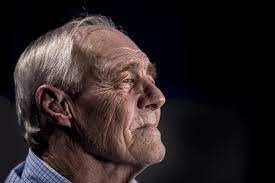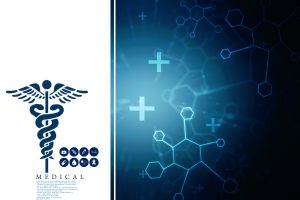How Does Age-related Hgh Decline Impact Health?
Video Link: https://vimeo.com/569201007
Video Download: How Does Age Related Hgh Decline Impact Health Part One
Video Stream: How Does Age Related Hgh Decline Impact Health Part One
HGH Decline: How Does It Impact My Life?
In many ways, aging is an unavoidable aspect of the human condition. We get older, and our bodies, as well as our faculties, inevitably start to deteriorate. Have you ever asked yourself why we age? Scientists have spent hundreds of years trying to answer the question with questionable levels  of success. Until recently, that is.
of success. Until recently, that is.
In the last two generations, the way that we understand the aging process has changed tremendously as our ability to study the human body and life itself continues to grow more sophisticated by the year. As our knowledge of aging grows, it is quickly becoming clear that many aspects of aging are not as unavoidable as we once believed.
HGH Deficiency and Aging
Physicians have always understood that healthy hormone balance is one of the keys to good health, but our medical knowledge of how hormone imbalance negatively impacts health has lagged. Human Growth Hormone is an incredibly complex hormone that impacts human health at all stages of development and throughout the lifespan.
At face value, the goal of Human Growth Hormone is quite simple. HGH stimulates healthy cell division and replication. When we look into the individual processes of the body, however, Human Growth Hormone becomes almost infinitely complex.
Human Growth Hormone plays a role in every aspect of human health and physiological function. The following is just a short list of ways that HGH positively impacts healthy function:
Increases the efficiency with which nutrients circulate through the body, increasing energy and reducing fatigue.
Promotes skeletal health by stimulating osteoblast activity in the bones, which speeds up the rate at which minerals are recycled by the osteoblasts, improving Bone Mineral Density.
Enhances fat metabolism, encouraging the body to utilize adipose fat tissue, which directly burns calories and preserves a healthy weight
Safeguards neurological health, helping the mind's memory and cognitive faculties remain strong.
It bolsters the immune system's efficiency, increasing the body's resistance to infection and disease.
Human Growth Hormone is essential because it keeps the body running efficiently and smoothly. Other hormones are responsible for the body's proper function, but no hormone impacts the capacity of the human body's function quite like HGH.
The Problem with HGH
Human beings have a problem, however. Human Growth Hormone promotes health throughout our lives, but as we age, our bodies become less efficient at producing the hormone.
efficient at producing the hormone.
Any disease or condition doesn't cause this deficiency (although a number of environmental factors can hasten it); it is just a natural way that our body changes as we age, and there is robust evidence that the decline of HGH that occurs with life is a significant contributor to the ailments that we experience as we grow older.
HGH Production Throughout the Lifespan
Under normal circumstances, every human being experiences the same general story concerning Human Growth Hormone. When we are born, we produce a lot of it, and it helps us grow. When we reach puberty, we experience a surge in HGH Secretion which lasts for years, combined with the sex hormones, contributing to almost all of the physiological changes associated with puberty.
As we finish puberty, we reach our Final Adult Height, and HGH Production drops to healthy adult levels. Puberty ends when the growth plates of the long bones harden, preventing the bones from experiencing any further growth, so excess HGH production no longer has a beneficial physiological purpose.
For the next fifteen years, Human Growth Hormone Levels will remain somewhat steady in the human body. We produce the perfect amount to keep our body working at optimal efficiency. Human Growth Hormone helps us maintain the bountiful youthfulness and vitality of the late teens and twenties.
What Happens to HGH When we Turn Thirty?
At some point between the ages of 27 and 35, our Adult HGH Levels will start to drop. It's not something that you will notice immediately, or even over the course of many years, but it can eventually negatively influence your life.
Certain factors will hasten or slow the onset of HGH Deficiency. Still, the human body consistently produces less Human Growth Hormone in correlation  with age, and the rate of decline is relatively constant, ranging between one and two percent yearly.
with age, and the rate of decline is relatively constant, ranging between one and two percent yearly.
This insidious decline in Hormone Production will slowly decay all of the benefits you experience from a healthy hormone balance. If you are particularly sensitive to Human Growth Hormone, you will experience these symptoms much more quickly than others.
Some individuals may be more adapted to declining HGH Production and will suffer fewer symptoms resulting from that decline. Your genetics and heredity play a significant role in how your body responds to fading HGH Levels.
Here are some of the symptoms of HGH Deficiency:
Loss of Energy
Loss of Sex Drive
Decreased Fat Metabolism
Muscle Atrophy
Osteoporosis
Depression
Cognitive Decline
Memory Issues
Increased Susceptibility to Illness
Inhibited Injury Rehabilitation
Environmental Factors which Contribute to HGH Decline
Without medical intervention, HGH Decline is inevitable. Still, there are a number of different lifestyle choices which can hasten the rate at which our bodies become less efficient at producing Human Growth Hormone:
Obesity and HGH Deficiency
Human Growth Hormone Deficiency is intricately correlated with body fat. One reason is that HGH and Insulin have a delicate interplay that promotes healthy function. People who are obese are more likely to experience insulin sensitivity, which causes the body to produce high insulin levels. As insulin levels spike, HGH Levels drop, reducing the benefit of Human Growth Hormone to the body.
Adipose fat cells also produce a hormone called cortisol, which is negatively correlated with Human Growth Hormone production.
Poor Sleep and HGH Deficiency
The human body produces Human Growth Hormone in the highest concentrations while we sleep. HGH Secretion occurs most significantly during the deepest phases of sleep. Poor sleeping habits can inhibit the body's ability to experience deep and healthy sleep, reducing the Pituitary's ability to  release HGH in beneficial concentrations. Obesity can interact with Poor Sleep, contributing to a condition known as sleep apnea which further reduces sleep quality.
release HGH in beneficial concentrations. Obesity can interact with Poor Sleep, contributing to a condition known as sleep apnea which further reduces sleep quality.
Sedentary Lifestyle and HGH Deficiency
Aside from sleep, our bodies produce the most HGH during strenuous physical activity. When you run, lift weights, play basketball, or perform any other form of physical activity, you encourage the body to produce more Human Growth Hormone.
Sitting at a desk or lying on the couch all day, your body loses a significant source of Human Growth Hormone, causing you to experience the symptoms of Human Growth Hormone Deficiency more severely. A sedentary lifestyle promotes weight gain and prevents your body from establishing a healthy circadian rhythm, impacting your health and hormone balance.
Stress and HGH Deficiency
Stress has a direct and negative impact on your hormone balance. Biologically, the feeling of stress results from the secretion of a hormone known as Cortisol. Cortisol is an important hormone, but it's a hormone that our bodies have a nasty habit of producing in excess. Cortisol is released by the adrenal gland in response to stress and ambiently produced by adipose fat cells.
Cortisol spikes switch on our fight-or-flight mechanism, helping us to make split-second decisions in the spur of the moment. Excess cortisol production has a disastrous effect on hormone balance, however. When cortisol is constantly secreted, it eats away at our body's ability to produce other vital hormones, such as Testosterone and Human Growth Hormone.
What Causes Age-Related HGH Deficiency?
This is one of the big questions that scientists are trying to answer about HGH Deficiency. We know that Growth Hormone Decline is not specific to humans. It appears that GH Decline is a condition affecting all animal species worldwide. What is strange is that there seem to be very few benefits to Adult-Onset GH Deficiency from the perspective of the individual creature.
Some hypothesize that this deficiency may be a genetic pressure to encourage older organisms to die off, increasing the number of resources available to younger creatures.
HGH and the Endocrine System
What's interesting about HGH Deficiency is that the Pituitary Gland, responsible for the secretion of Human Growth Hormone, remains healthy throughout the average human lifespan. This means that the body can always produce Human Growth Hormone under normal circumstances; it simply doesn't have the necessary input.
This means that Age-Related HGH Deficiency is not related to the health of the pituitary gland, but it is related to upstream operations associated with the Hypothalamus.
The Hypothalamus is responsible for generating the signals for more HGH, which are delivered to the Pituitary, which then fills out the order and sends Human Growth Hormone to the organs through the bloodstream.
For reasons we do not fully understand, the Hypothalamus slowly loses its signaling strength concerning Human Growth Hormone, and this causes the body to experience slowly increasing levels of HGH Deficiency.
Modern Science Can Treat HGH Deficiency
For men and women that are suffering a loss of quality of life resulting directly from Human Growth Hormone Deficiency, Bio-Identical HGH Hormone Replacement Therapy can help. This treatment enhances health by restoring the HGH level in the bloodstream to healthy adult levels.
This treatment is significantly different from the abuse of Human Growth Hormone because the goal here is not to flood the body with excess hormone but simply to restore the HGH level in the bloodstream that was associated with what we experienced in our twenties.
Aging is a complex and multifaceted biological condition, but one aspect of aging appears to be directly related to hormone imbalance. As Human  Growth Hormone Levels decline, our body no longer can fulfill the needs of the body, and physiological priorities change.
Growth Hormone Levels decline, our body no longer can fulfill the needs of the body, and physiological priorities change.
The human body starts to prioritize preservation over optimization simply, and we start to age faster and faster.
Human Growth Hormone is not a cure for aging. Still, it can alleviate or reverse many aging-related medical issues and have a clear and powerful impact on health and longevity.
If you are experiencing symptoms of decline associated with HGH Deficiency, Human Growth Hormone Replacement Therapy can help you maximize your health in your golden years.
Contact us for a FREE, no-obligation discussion concerning the remarkable anti-aging benefits of HGH Replacement Therapy!
- 0001 Serostim Bio-identical Hgh Injections [Last Updated On: August 14th, 2025] [Originally Added On: July 31st, 2020]
- 0002 Smart And Simple Tips To Boosting Your Hgh Production [Last Updated On: August 9th, 2025] [Originally Added On: August 1st, 2020]
- 0003 Ten Tips For Naturally Enhancing Human Growth Hormone Production [Last Updated On: June 12th, 2025] [Originally Added On: August 4th, 2020]
- 0004 How To Safely Inject (HGH) Human Growth Hormone [Last Updated On: April 2nd, 2025] [Originally Added On: August 5th, 2020]
- 0005 Can Hgh Injections Help You Manage Your Weight More Effectively? [Last Updated On: June 11th, 2025] [Originally Added On: August 6th, 2020]
- 0006 Do Not Buy Hgh Sprays As Scams [Last Updated On: June 10th, 2025] [Originally Added On: August 8th, 2020]
- 0007 Can Human Growth Hormone Really Slow Down Aging? [Last Updated On: June 9th, 2025] [Originally Added On: August 9th, 2020]
- 0008 The Potential Side Effects Of Human Growth Hormone (HGH) [Last Updated On: February 16th, 2025] [Originally Added On: August 10th, 2020]
- 0009 Beware Hgh Scams: Only Use Bio-identical Growth Hormone [Last Updated On: April 22nd, 2025] [Originally Added On: August 13th, 2020]
- 0010 Human Growth Hormone Replacement Therapy For Hgh Deficiency [Last Updated On: September 11th, 2025] [Originally Added On: August 14th, 2020]
- 0011 How Does The Human Body Produce Human Growth Hormone? [Last Updated On: May 15th, 2025] [Originally Added On: August 17th, 2020]
- 0012 Do Not Buy Hgh Pills As Scams [Last Updated On: May 14th, 2025] [Originally Added On: August 18th, 2020]
- 0013 Hgh Injections From Mexico Are Dangerous And Illegal [Last Updated On: February 14th, 2025] [Originally Added On: August 19th, 2020]
- 0014 Human Growth Hormone Menopause Treatment [Last Updated On: February 20th, 2025] [Originally Added On: August 20th, 2020]
- 0015 Hormone Replacement Therapy Protects The Minds Of Hgh Deficient Patients [Last Updated On: May 12th, 2025] [Originally Added On: August 21st, 2020]
- 0016 Hgh Illegal Or Legal [Last Updated On: May 17th, 2025] [Originally Added On: August 22nd, 2020]
- 0017 How To Inject Hgh And Testosterone Safely And Easily [Last Updated On: May 13th, 2025] [Originally Added On: August 23rd, 2020]
- 0018 Human Growth Hormone Medical Research [Last Updated On: February 17th, 2025] [Originally Added On: August 24th, 2020]
- 0019 The Healing Properties Of Human Growth Hormone [Last Updated On: May 11th, 2025] [Originally Added On: August 25th, 2020]
- 0020 Hgh Therapy For Woman [Last Updated On: February 12th, 2025] [Originally Added On: August 26th, 2020]
- 0021 Hgh Therapy For Men [Last Updated On: April 19th, 2025] [Originally Added On: August 27th, 2020]
- 0022 Human Growth Hormone Injections Can Improve Joint Recovery After Injury [Last Updated On: May 10th, 2025] [Originally Added On: August 30th, 2020]
- 0023 The Anabolic And Bodybuilding Effects Of Bio-identical Hgh Injections [Last Updated On: May 9th, 2025] [Originally Added On: August 31st, 2020]
- 0024 Does Human Growth Hormone Really Have Healing Power? [Last Updated On: May 7th, 2025] [Originally Added On: September 1st, 2020]
- 0025 Getting HGH Growth Hormone Online [Last Updated On: May 8th, 2025] [Originally Added On: September 3rd, 2020]
- 0026 Buying Hgh [Last Updated On: June 4th, 2025] [Originally Added On: September 5th, 2020]
- 0027 Increase Your Potential With Hgh! [Last Updated On: June 3rd, 2025] [Originally Added On: September 6th, 2020]
- 0028 Can Bio-identical Hgh Help You Live The Life You Want? [Last Updated On: February 17th, 2025] [Originally Added On: September 8th, 2020]
- 0029 How Hgh Improves Libido [Last Updated On: February 17th, 2025] [Originally Added On: September 9th, 2020]
- 0030 Can Human Growth Hormone Speed Up Physical Rehabilitation [Last Updated On: September 17th, 2025] [Originally Added On: March 14th, 2021]
- 0031 A Beginner's Guide To Human Growth Hormone Replacement Therapy [Last Updated On: February 19th, 2025] [Originally Added On: March 16th, 2021]
- 0032 Can Hgh Injections Help You Live A Healthier And Happier Life? [Last Updated On: September 16th, 2025] [Originally Added On: March 19th, 2021]
- 0033 Buy Hgh Injections For An Introduction To Growth Hormone Therapy [Last Updated On: November 12th, 2022] [Originally Added On: March 20th, 2021]
- 0034 Improve Sexual Performance With Hgh Injections [Last Updated On: February 14th, 2025] [Originally Added On: May 12th, 2022]
- 0035 Understand The Risks Of Human Growth Hormone Overdose And Abuse [Last Updated On: October 15th, 2025] [Originally Added On: May 24th, 2022]
- 0036 Racing Ferraris – A Stressful Way to Earn a Living [Last Updated On: March 19th, 2025] [Originally Added On: July 12th, 2022]
- 0037 HGH: The Happiness Hormone [Last Updated On: March 26th, 2025] [Originally Added On: August 15th, 2022]
- 0038 Government, Contractor, and NGO Productivity, Efficiency, and HGH [Last Updated On: February 24th, 2025] [Originally Added On: September 7th, 2022]
- 0039 Without HGH, You Might as Well Be Dead [Last Updated On: March 11th, 2025] [Originally Added On: September 16th, 2022]
- 0040 Study Suggests Women Can Sniff Out Single Men [Last Updated On: April 23rd, 2025] [Originally Added On: February 17th, 2023]
- 0041 Geographic Distribution of HGH Deficiency [Last Updated On: May 3rd, 2025] [Originally Added On: July 13th, 2023]
- 0042 Sudden Onset of HGH Deficiency [Last Updated On: September 8th, 2025] [Originally Added On: September 22nd, 2023]
- 0043 The Emotional and Mental Health Effects of HGH Deficiency [Last Updated On: September 6th, 2025] [Originally Added On: September 28th, 2023]
- 0044 Understanding Hormone Replacement Therapy for Menopause [Last Updated On: February 6th, 2025] [Originally Added On: February 6th, 2025]
- 0045 Unveiling the Magic of Human Growth Hormone: A Colorful Spectrum in Medical Marvels [Last Updated On: February 16th, 2025] [Originally Added On: February 13th, 2025]
- 0046 Introduction: The Demand for Health-focused Care in Professional Environments [Last Updated On: February 15th, 2025] [Originally Added On: February 15th, 2025]
Word Count: 1707






